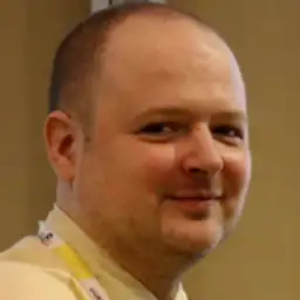Abstract:
I n our work we implemented novel approaches in assessment of pesticide genotoxicity to humans. In the first row we wanted to evaluate the effect of different pesticides to genes TP53 and c-Myc under realistic levels of exposure to glyphosate, carbofuran, chlorpyrifos, α-cypermetri and, imidacloprid. Carbofuran lead to significant DNA migration into the tail in a concentration-dependent manner, while for terbuthylazine lead to significant migration to the tail only t the higher concentration. of c-Myc signals into the comet tail. A significant occurrence of TP53 signals in the tail was observed at highest doses tested doses corresponding to realistic exposure. In the presence of S9, distribution of signals shifted toward increased their presence in tail. The opposite results were obtained after treatment of the cells with chlorpyrifos, α-cypermetri and, imidacloprid. No matter what concentration has been applied, with or without metabolic activation, no increase of fragmentation of TP53 s tumor suppressor gene or c-Myc as prooncogene were observed. The other technique for addressing the genotoxic potential of pesticides is their preference to be subjected to missegregation due to pesticide effect and mode of action.
Biography:
Prof. Davor Zeljezic, Ph.D. obtained the Master of Science degree in the field of toxicology in 2000 at the Faculty of Science, University of Zagreb, Croatia. Doctoral thesis that he defended was in the field of genetic toxicology of pesticides. Since yet he published more than 70 scientific papers in indexed journals, with more than 1200 citations. At the moment he is the scientific advisor at the Institute for Medical Research and Occupational Health, Zagreb, Croatia. He is also the expert on behalf the Republic of Croatia in Member state committee of European Chemicals Agency (ECHA), and member of the Food enzymes scientific working group of European Food Safety Authority (EFSA). The main subject of his scientific work was pesticides’ modes of action in regards to genetic material. His research approaches were based on experiments on human cell cultures in vitro, rodent experiments in vivo and epidemiological studies comprising both, residents and occupationally exposed individuals. The methods that he applied in the work were chromosomal aberrations, micronucleus cytome assay, sister chromatid exchange assay, alkaline comet assay, hOGG1 enzyme modified comet assay, fluorescence in situ hybridization (FISH), and comet-FISH. At the moment he is the principal investigator at the project entitled Organic Pollutants in Environment - Markers and Biomarkers of Toxicity (OPENTOX), financed by Croatian Science Foundation. Besides, he leaded, collaborated as the scientist or advisor at 7 additional scientific projects. He is member of the editorial board of BioMed Research International, vicepresident of Croatian Toxicological Society, member of several national panels for projects proposal evaluation, reviewer in many scientific journals indexed in Current contents. He collaborated in the organization of domestic and international scientific conferences and held the lectures in the field of toxicology two domestic universities (Zagreb and Rijeka).



